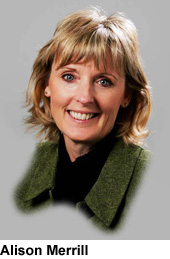Clinicians who become educators often feel insecure, frustrated, and isolated. (Republished from 2017.)
 Most university-level educators are not required to know how to teach. The reality is, although the vast majority of college professors are experts in their fields of study, most do not have a background in the art and science of educating. This is especially true in fields that require their members to have both content knowledge and clinical expertise. People who lack adequate training in teaching may experience stress and high anxiety when they move from roles in which they feel confident and competent into new roles and settings.
Most university-level educators are not required to know how to teach. The reality is, although the vast majority of college professors are experts in their fields of study, most do not have a background in the art and science of educating. This is especially true in fields that require their members to have both content knowledge and clinical expertise. People who lack adequate training in teaching may experience stress and high anxiety when they move from roles in which they feel confident and competent into new roles and settings.
Despite being thrust into roles that may be foreign to them, new faculty members often receive minimal orientation and mentoring. Many nursing faculty members come from healthcare settings where they have been involved in providing or supervising hands-on care and find that their new position in education requires them to learn new skills and apply knowledge differently. Despite their expertise, clinicians who start over as novice educators often find that the switch leads to insecurity, frustration, and a sense of isolation.
 Worry list
Worry list
At the University of Northern Colorado (UNC) School of Nursing, new faculty members often cite the following adjustment anxieties, a list that may not be exhaustive. They worry that:
- They don’t know enough about the content of a course to teach it.
- They won’t be able to answer students’ questions.
- They will appear unsure or hesitant when teaching and answering questions.
- They won’t understand the curriculum, much less know how to go about changing or improving it.
- They won’t know how to create syllabi, exams, lectures, and classroom activities.
- They won’t know how to teach about being a nurse.
- They won’t be able to evaluate students fairly.
- They don’t understand the role of a faculty member or how to fit into the culture of their new department.
In general, they are concerned that they will feel out of place in higher education. These anxieties can make their first few years as educators lonely and uncomfortable and, for some, will result in flight from academia.
Defining the problem
Not only is that a problem for new nurse educators, it’s a problem for nursing for two reasons: 1) There is a shortage of nurses who have terminal degrees. 2) There is a shortage of nurses with higher degrees who choose to teach in the academic setting. It is, therefore, imperative that we create a climate that helps novice nurse faculty members feel welcome and adequately mentored as they transition from practice to teaching. In making that transition, it is vital that new faculty members develop the knowledge and skills needed to grow into confident and competent nurse educators.
Compared to clinicians, educators are not particularly well paid. It is thus important that nurse educators find non-monetary compensation through the rich rewards and satisfaction that can be found in becoming an exceptional educator. To help new colleagues at UNC School of Nursing feel optimistic and confident about their recent career change and to provide them with the tools and skills needed to grow in their new setting, a group of certified nurse educators (CNEs) at UNC designed a formalized course of study.
Creating and sustaining a development course for new faculty members require frequent collaboration, time, money, and administrative support. For senior faculty members already engaged in a full slate of faculty assignments, the time commitment is a major hurdle. Money is another obstacle. In light of faculty load, there is little room for additional compensation of either time or money to create development programs; so, most faculty members who engage in such activities do so by going over and above their current commitments, whether it’s committee work or other expectations.
Addressing the problem
Recognizing a need for nurse faculty to be better trained in teaching, a group of CNEs at UNC made those personal time commitments, established objectives, and set goals for colleagues who were interested in learning more about the role of an educator. Using a Nurse Educator Core Competency plan developed by the National League for Nursing (NLN) and guided by an outline created by the NLN for passing the Certified Nurse Educator examination, we created a course delivery plan with two overall goals: 1) Help faculty members increase their competence as educators, and 2) increase the cadre of certified nurse educators among our faculty.
Challenges encountered in mentoring and helping our colleagues grow as educators included logistic concerns, support, and selection of appropriate content and strategies. With regard to logistics, the course we created featured both face-to-face and online delivery, combined with self-study and practice questions. To accommodate the varied schedules of the 11 course participants, we held one series of sessions in the morning and another on weekdays at lunchtime. We also established a website using the university’s course management system (Blackboard), where we posted course materials, including PowerPoint presentations used in interactive lectures, a discussion board for questions, and videos of each face-to-face session.
Tangible support aspects provided by the UNC School of Nursing conveyed the message that faculty development was a priority and highly valued. This message was critical to success of the mentoring effort. We also provided review books, packets of materials, and refreshments.
Effective educator behaviors were woven throughout the content and strategies developed for the course by the school’s CNE-credentialed faculty members. Teaching strategies included interactive lectures, group discussion, and practice test questions, as well as audience-response devices (clickers) that communicated group consensus when correct answers were given. An evidence-based approach was also used to help participants new to the educator role become acquainted with educator competencies.
Passing the test
Topics for the course, chosen in order of their importance to the role of nurse educator, corresponded with the CNE exam weightings. As a result, 1) facilitating learning, 2) using assessment and measurement strategies, 3) participating in curriculum planning and evaluation, and 4) facilitating the development and socialization of the learner were strongly emphasized. The final session of the course included group discussion of the practice examination available from the National League for Nursing. After discussing and debating each question, we “submitted” the practice exam as a group and made an 86, a passing score!
The course was offered to all nurse faculty members, and participants included instructors and assistant professors, as well as contract and adjunct faculty members. To accommodate scheduling conflicts, timing flexibility and ability to access materials online were provided.
To be most effective, mentoring should meet the needs of mentees while accommodating commitments of mentors. As with any mentoring activity, the most important consideration during course development was to ensure that there was adequate time for significant interaction between the certified nurse educators who served as faculty for the course and the participants. As they shared experiences, discussed dilemmas faced by educators, and interacted about best ways to challenge students and enforce policies, everyone came away with new insights. Most importantly, the course provided an opportunity for course leaders and participants to intentionally focus on gaining knowledge and improving their skills as educators. All “students” who took the course have been retained in their faculty roles for another year, and, thus far, two have become certified as nurse educators, or CNEs.
Mentoring nurse educators is critical to ensure that the number of educators who have learned how to teach continues to grow. Although the role of serving as a faculty member is demanding and not optimally compensated, the non-monetary rewards can be immensely satisfying. Reaching and maintaining the level of competency prescribed for nurse educators by the National League for Nursing require constant learning. For those who aspire to become faculty members and achieve excellence in nursing education, mentoring by senior faculty members is a key ingredient.
Alison S. Merrill, PhD, RN, CNE, is associate professor, University of Northern Colorado School of Nursing in Greeley, Colorado, USA.
Editor’s note: Jeanette McNeill, Alison Merrill, Katrina Einhellig, and Kristin Schams, all of whom are certified nurse educators at the University of Northern Colorado School of Nursing in Greeley, Colorado, USA, presented “Advancing the Science of Nursing Education Through Peer Mentoring” at the 28th International Nursing Research Congress in Dublin, Ireland. McNeill, Einhellig, and Schams also collaborated with Merrill in the writing of this article. See the Virginia Henderson Global Nursing e-Repository for additional information.
Other articles in this series
Note: This article has been reposted because of technical problems with the RNL website when the article was first published on 7 July 2017.